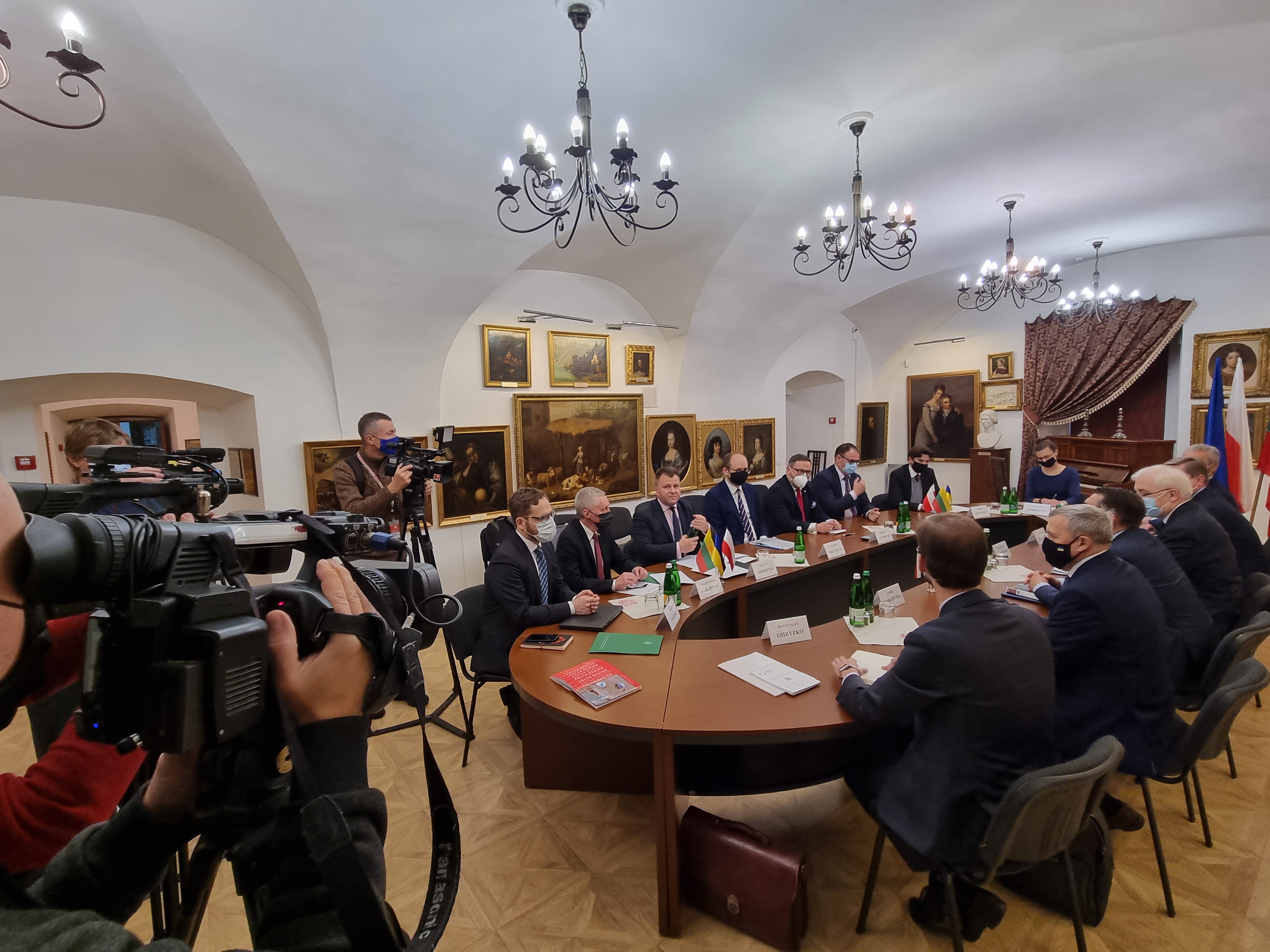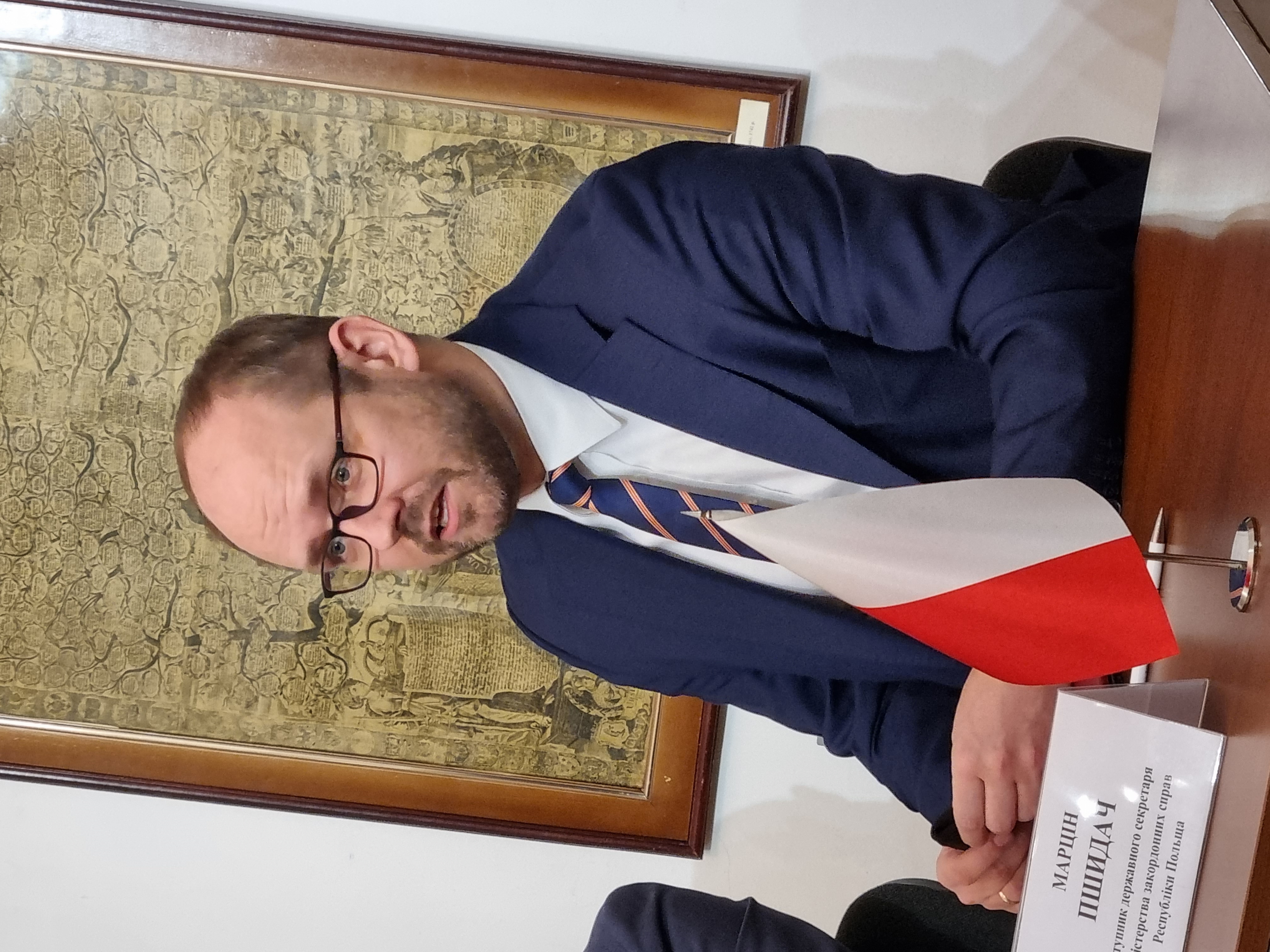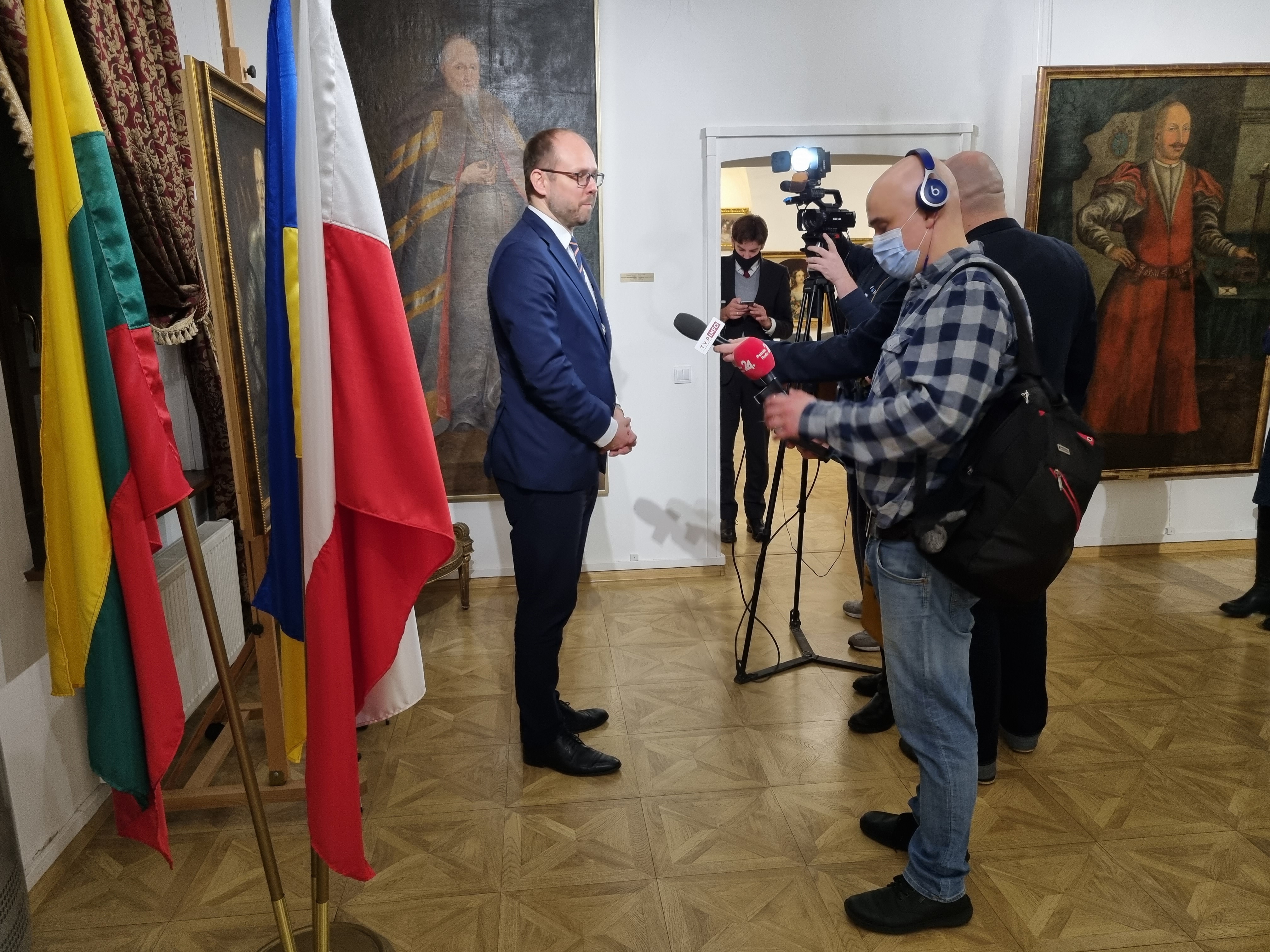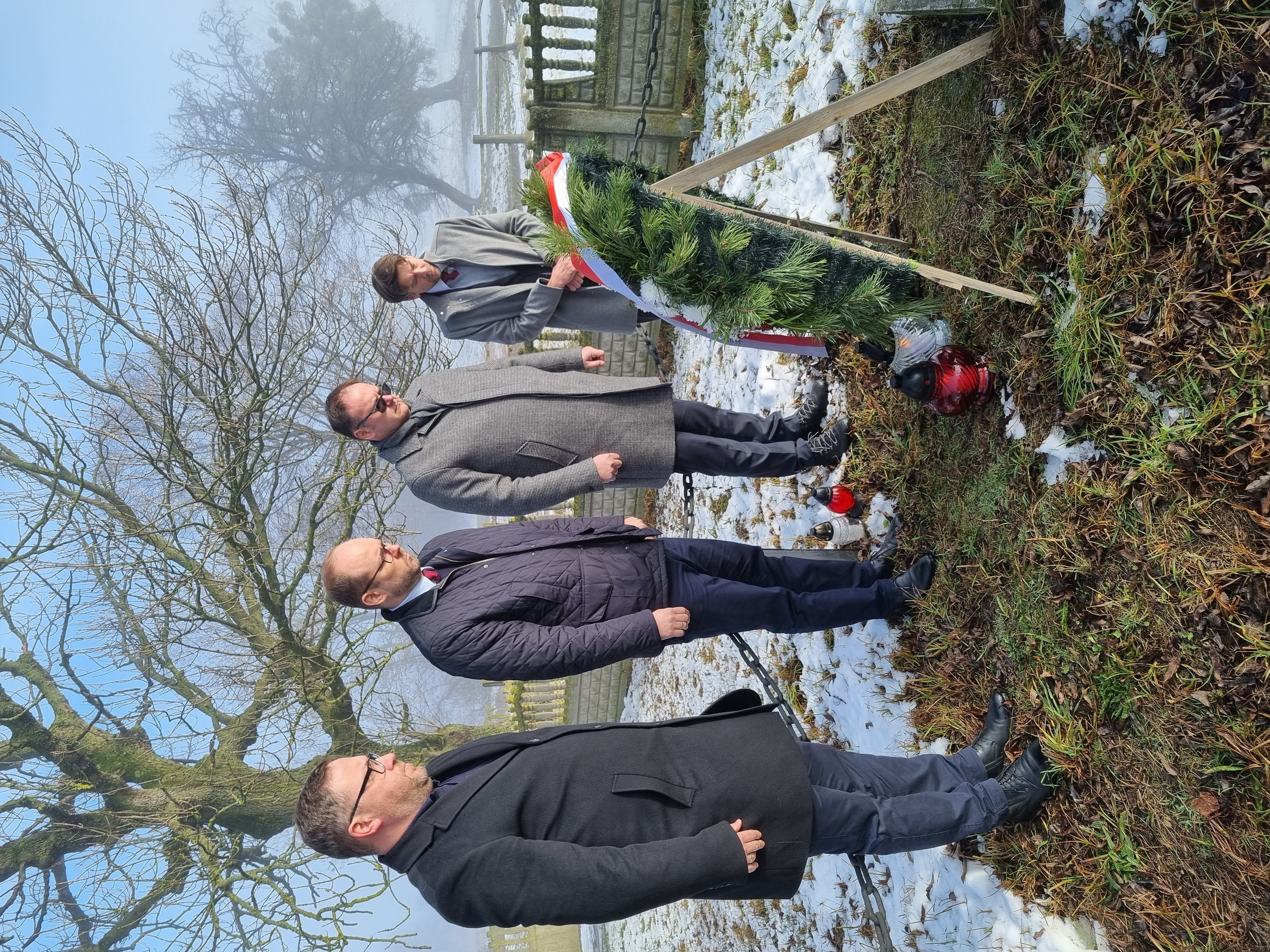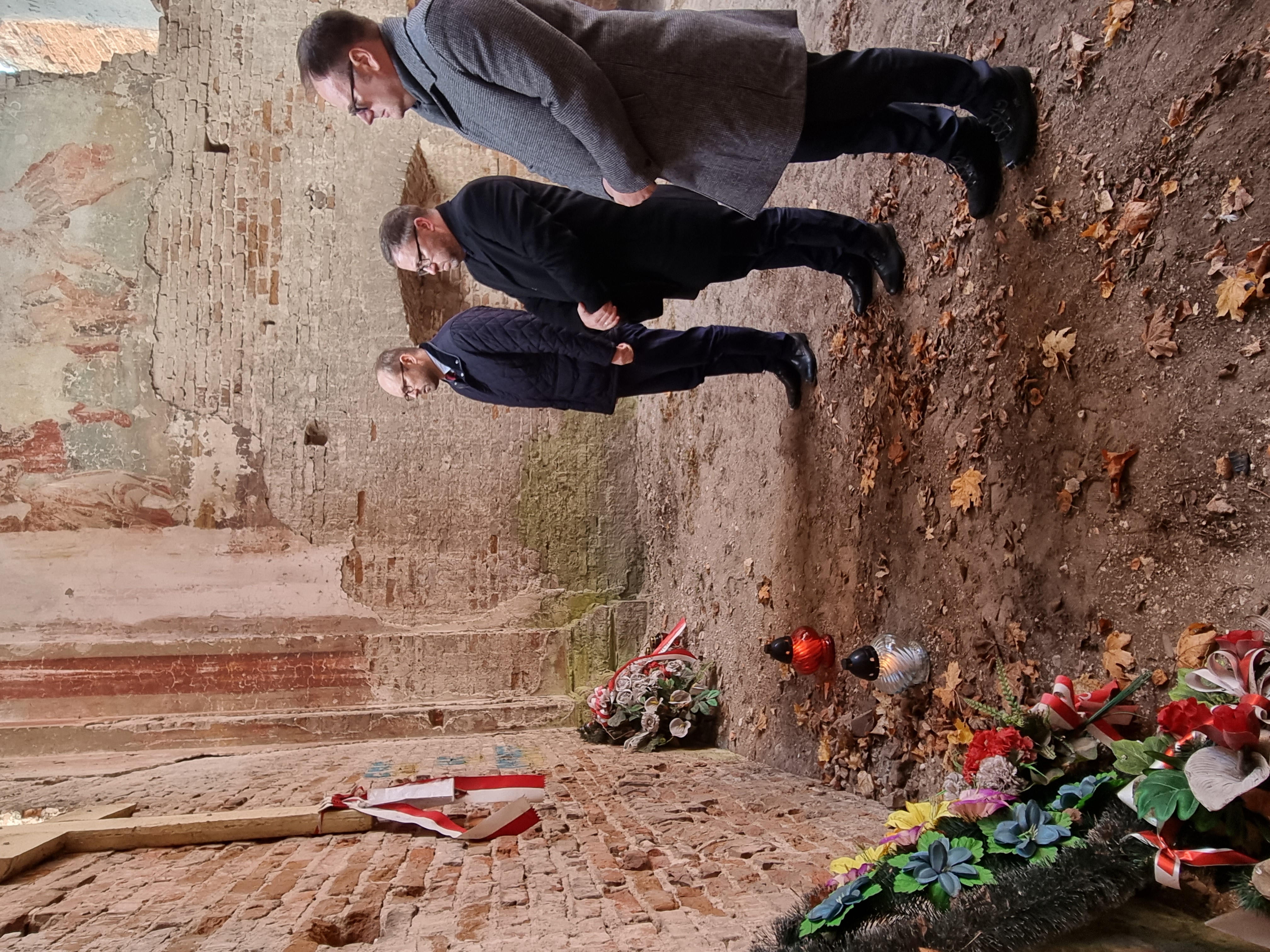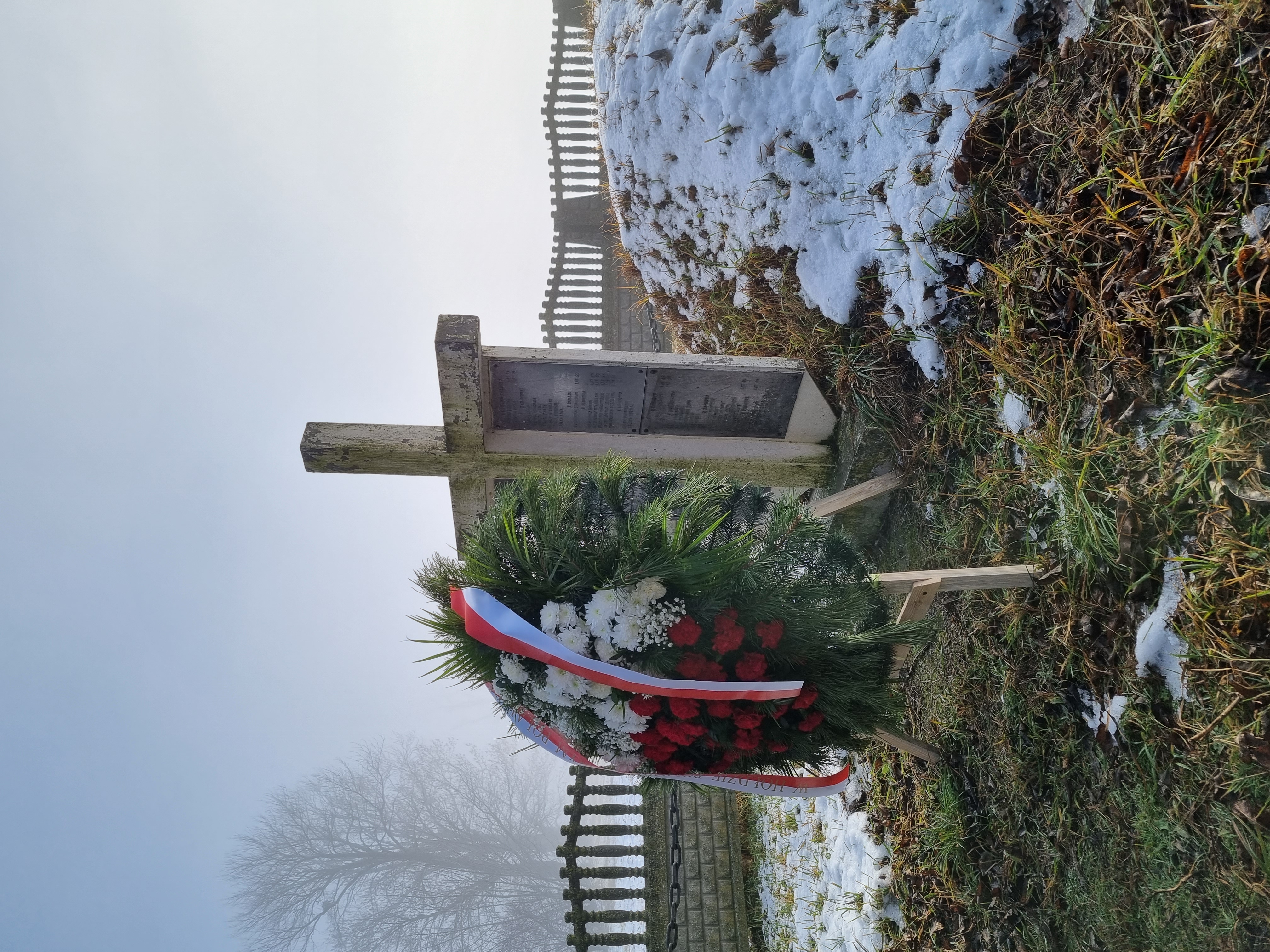Deputy Minister Marcin Przydacz attends meeting of Lublin Triangle coordinators in Lutsk
13.12.2021
On 11 December 2021, at a meeting of the Lublin Triangle (L3) coordinators in Lutsk, the deputy foreign ministers discussed the current security issues in the region, paying special attention to the threat posed by the Russian Federation to Ukraine’s security as well as to the hybrid attack orchestrated by Lukashenko against Poland’s eastern border. The diplomats were unanimous in condemning the Russian Federation’s attempts to escalate regional crises in the security dimension. “The Lublin Triangle serves its fundamental purpose as a forum of day-to-day cooperation and coordination of positions on issues that are of key importance for the initiative’s three member states.

We make full use of this instrument at various levels: the national coordinators have regular consultations, the foreign ministers hold talks and meetings, and there are plans for discussions at the highest level – between our presidents and prime ministers. The parliamentary dimension of the Triangle is also very active, as evidenced by the recent session of the Parliament Assembly of Poland, Lithuania, and Ukraine,” noted Deputy Minister Przydacz. The deputy foreign ministers emphasised the need to give impetus to sectoral cooperation, in line with the Triangle’s Roadmap adopted in Vilnius in July 2021.
During the meeting, the L3 national coordinators signed the Joint Action Plan to Combat Disinformation for 2022-2023. The starting point for work on the document was the Roadmap adopted in Vilnius in July 2021 by the foreign ministers of Poland, Lithuania, and Ukraine. The Roadmap highlighted that in the coming years, one of the priorities of cooperation between Poland, Lithuania, and Ukraine would be strategic communication and countering hybrid threats. The Joint Action Plan envisages, among other things, preparing regular joint reports on information challenges and threats, developing a mechanism of a common response to disinformation campaigns, exchanging experiences and knowledge, and strengthening the countries’ capabilities to counter hybrid threats. “Over recent months, disinformation campaigns targeting Poland, Lithuania, and Ukraine have intensified and played a significant role in the hybrid attack against our eastern border. I am convinced that the joint action plan on countering disinformation will provide a solid basis to address information threats in a coherent way,” said Deputy Minister Marcin Przydacz.
On his way to the L3 coordinators’ meeting, the deputy chief of Polish diplomacy paid a visit to Horodło to revive the memory of the Union of Horodło of 1413. The visit took place 160 years after the great Manifestation of the Unity of the Polish-Lithuanian Commonwealth which renewed the union. Prior to the coordinators’ meeting, Deputy Minister Przydacz, Ambassador of the Republic of Poland in Kyiv Bartosz Cichocki, and Poland’s Consul General in Lutsk paid tribute to Polish citizens murdered by the Ukrainian Insurgent Army (UPA) in Kisielin in 1943.
Łukasz Jasina
MFA Press Spokesperson

